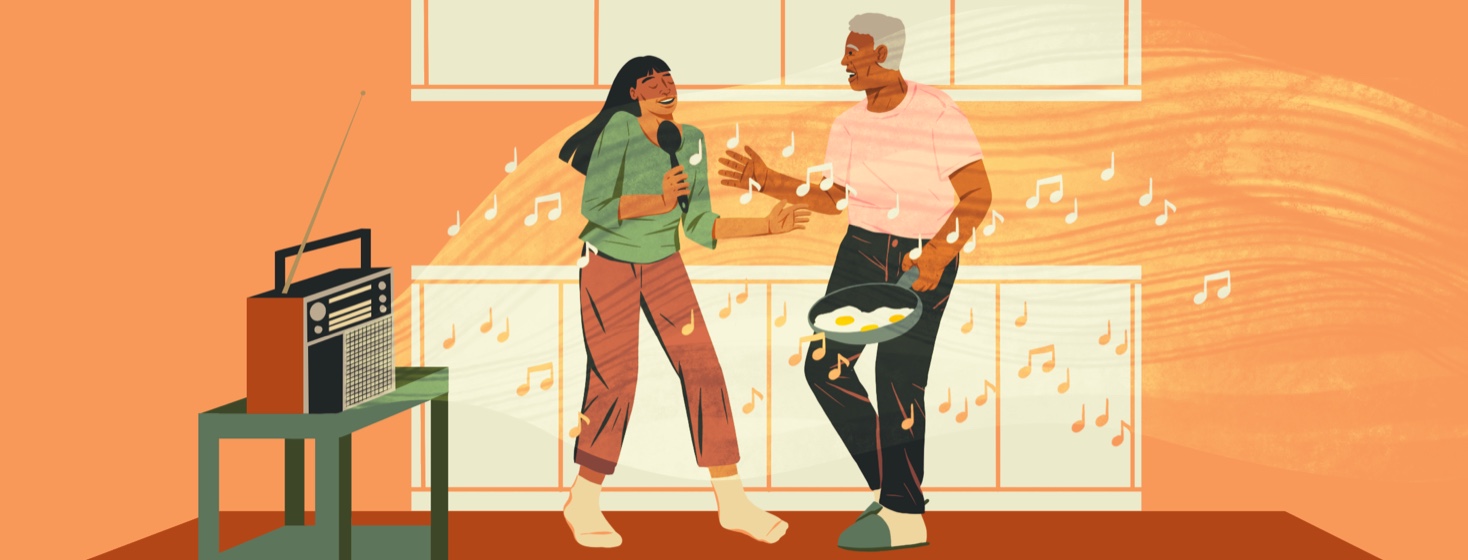Singing Is Good for Lung Cancer Patients' Mental Health
I have heard that people love to sing, even if they can't sing melodiously. It's believed that singing is good for self-care, and as a matter of fact, there's solid scientific evidence to prove it.1 I have first-hand experience of it.
Singing is good for lung cancer patients
When I was young, singing was my thing. During the '60s to ’80s in China, although music education was relatively backward due to lack of funding, singing was the cheapest thing that people could afford. So I excelled in singing, and I performed in the school several times each year. My singing career lasted until my primary school was over.
After I got lung cancer six years ago, singing was the last thing in my mind, but I constantly ran into the papers about the positive effects of singing.1-5 For example, although singing doesn't treat or cure lung cancer, we may benefit from strengthening our respiratory muscles or increasing the amount of oxygen in our blood.2-3 In addition, according to the literature, singing can relieve stress, stimulate the immune response, and increase the pain threshold.1 So I doubt it's some kind of sign that I should sing. However, I have lung cancer, and though I have no breathing issues yet, I firmly believe that singing is good for the lung and mood, and I started to sing.
Another side-effect of lung cancer treatment is chemo brain. I'm the one who suffers severe language problems even today, like stuttering and difficulty finding the words after my chemotherapy six years ago. Indeed, I found that singing helps me to deep breaths, open the chest and strengthen the muscles, but also the stuttering is getting improved.
Singing is good for my parents
My parents are 85 and 86 now, and after their retirement in China, they live close to me. My father taught himself to play the piano. He is a natural singer, and he can sing "O Canada" (the Canadian national anthem) flawlessly and performed at the Chinese Senior Parties every year.
There were several old-time songs during the '60s to '80s with Chinese communist party propaganda. At the time, Chinese movies were sparse, so that we could sing almost all the songs in the films. Thus every evening during the pandemic, through WeChat (Chinese version of Facebook), we choir for 30 minutes, and sometimes, my father plays synthesizer to accompany us.
Although my father doesn't have Alzheimer's, his memory is not as it used to be, but amazingly, he can remember every old song and incident that happened during the ’60s to ’80s. After singing, he always talks about his hometown, which was a poor and remote village in China, childhood, and customs with pictures. I learned a lot about my father's hometown's history, his university experience, and how he became a scientist and settled down in the capital city of Beijing, China, which is quite unusual for his generation. I felt that we are so close, although the pandemic separates us. I firmly believed that singing could enhance memory in old-aged people and bring them happiness.5
Singing is good for mental health
In the beginning, I thought I was helping my parents by singing. But, gradually, I realized that we are helping each other not restricted to the physical side, but also mental health side. More importantly, I can honestly say that singing improves the mood and develops a sense of belonging and connection for both my parents and myself.4,5 I recently saw a piece of British news about a group of patients with lung disease who systematically practiced singing, and the effects are unbelievable. Some of them were lung cancer patients.6
Let's sing loudly!

Join the conversation